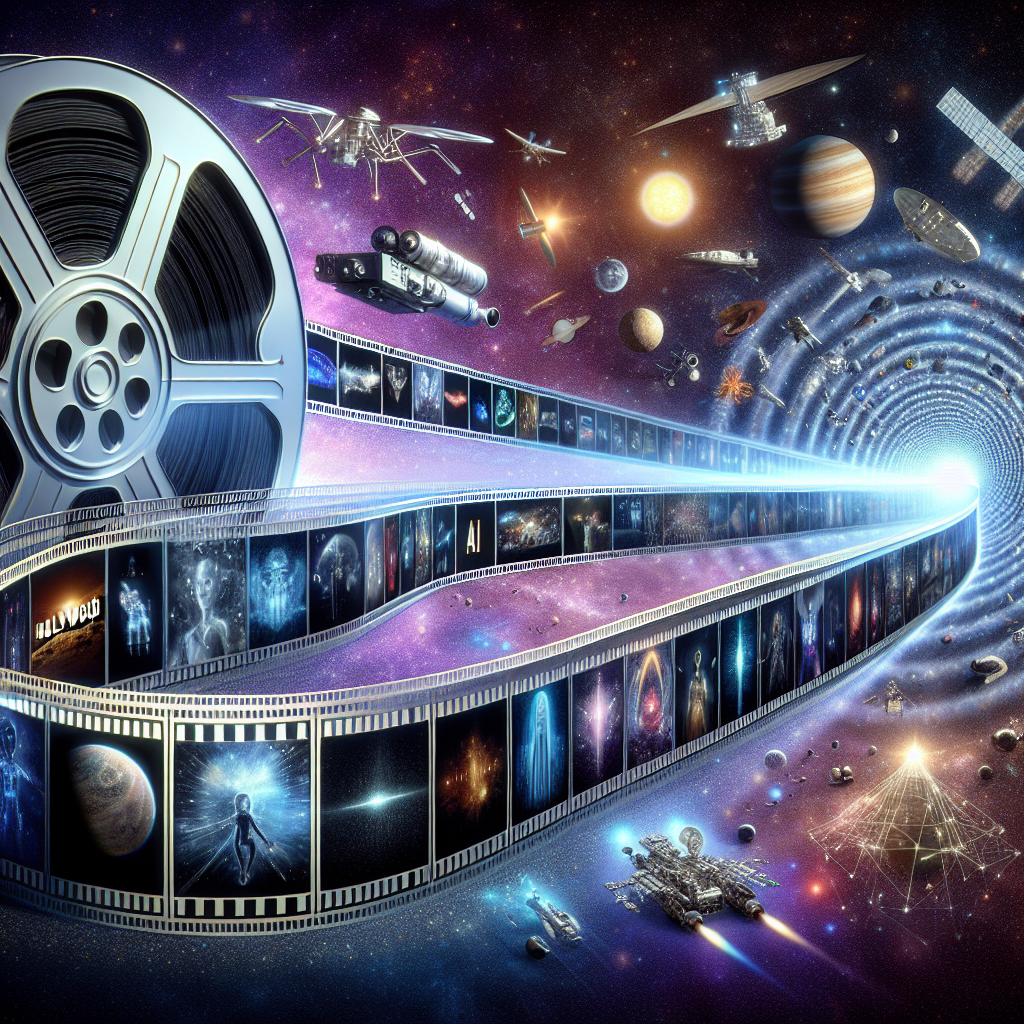Navigating the Nuances of Hollywood, AI Ethics, and the Boundless Final Frontier
In the ever-evolving confluence of technology and entertainment, where artificial intelligence and the final frontier of space coalesce, there's an electric current of stories charging through the zeitgeist. The buzz of AI's potential and the grip of Hollywood's narratives have long enchanted audiences. But as the Screen Actor's Guild (SAG) pens a controversial deal with a voiceover studio, the lines etch deeper in the sand—casting shadows on the faces of voice actors everywhere. Let us take a plunge into the depths of this new reality, where the past and future intertwine, and explore the conversations and controversies that shape our digital and celestial horizons.
Hollywood's AI Tango: A Boon or a Bane?
In a recent turn of events, SAG inked a deal that is rippling through the entertainment industry's waters. The agreement, which endorses the use of AI in video game voiceovers, comes as a shockwave to many. While technological advancements like the AI-assisted voice acting in "Baldur's Gate" have wowed audiences, it leaves real human voices trembling with uncertainty.
The Screen Actor's Guild: A Step Backward?
The SAG's new deal stands as a testament to the seismic shifts in the industry. However, the question lingers—does this merge of AI and voiceover work signify a step back for the actors who fuel Hollywood's spoken word symphony?
The distinction between voiceover and voice acting is as fine as gossamer, yet the impact is as heavy as lead. The agreement, which might be seen as a savvy move to future-proof the Guild, could very well be a Pandora's box—redefining the essence of what it means to perform and perhaps, in time, rendering human voices obsolete in video games.
The Evolution of Screen Narratives
Hollywood's narrative engine is sputtering, grasping for fresh ideas while regurgitating the old. One can't help but ponder, is the integration of AI into storytelling a shortcut to creativity or simply a cost-cutting crutch? As audiences are teased with the prospects of video game adaptations like a potential "Baldur's Gate 3" show, AI's role in entertainment becomes even more palpable.
The Ethical Maze of AI Use
Amid Hollywood's dance with AI, a darker tune plays in the realm of patents and plagiarism. With Google reeling under a biblical $1.67 billion patent trial accusation, the integrity of innovation stands on trial. The case, surrounding the contentious Bfloat16 data format, barrels towards a legal showdown that could redefine the boundaries of AI-generated knowledge.
AI: The Good, The Bad, and The Ugly
The glittering potential of AI is marred by the stark reality of ethical dilemmas. From the allure of OpenAI's GPT store to the gravitas of copyright controversies with the New York Times, the industry wades through murky intellectual property waters. The challenges of creating AI tools without crossing copyright lines emerge as a daunting tightrope act for tech giants and startups alike.
The Future of AI-Generated Content
As Google and other companies face criticism for alleged idea appropriation, the future of AI-generated content stands at a crossroads. It raises profound questions—what constitutes intellectual theft in the digital age, and can AI collaborators ever truly navigate the minefield of copyright infringement without collateral damage?
AI Ascension: Driving Into Uncertainty
Moving from the metaphysical to the metal, the latest automotive trend sees AI invading the driver's seat. Volkswagen is implanting chatbots into cars, promising "enriching conversations" where silence was once golden. But it begs the question: is civilization driving towards a more connected future or barreling over the cliff of privacy invasion?
The Quietude of the Open Road
The sanctity of the solo drive, once a refuge from the world's cacophony, now trembles under the looming presence of chatty AI companions. What remains of the driver's serene solitude when the vehicle itself echoes with unsolicited banter?
The Great Space Endeavor: Imagination Meets Reality
In stark contrast to the terrestrial tango with technology, NASA's ambitions soar towards the stars. Their proposal to shower Proxima Centauri with a swarm of probes encapsulates humanity's undying thirst to unravel the universe's secrets. Could this be the next giant leap for mankind, or will these tiny vessels drift into the cold expanse as mere cosmic whispers?
The Moon's Beckoning: Delays and Determination
Even as NASA postpones human lunar landings to 2026, entrepreneurial spirits like Elon Musk race against time and tide, sending rockets skyward with a fervor that NASA itself once embodied. Could private ventures eclipse national agencies in the race to the stars?
The Final Verdict: Taming the AI Beast
In the hinterlands of AI ethics, screen storytelling, and space exploration, society stands at the intersection of awe and apprehension. As we navigate the intricacies of AI agreements, the specter of litigation over innovation, and the relentless march towards a cosmos we barely comprehend, the path ahead is fraught with beauty and peril alike.
As we delve deeper into these stories, one thing is clear—the future is unfurling before us, a tapestry of potential and pitfall, narrated by AI and penned by human hands. The question remains: how will we write the next chapter?
Related News
- Navigating the Complex World of AI: A Dive into Recent Developments and Controversies
- Navigating the AI Tsunami: A Deep Dive into the Currents Shaping Our Digital Future
- Weekly AI Insights: Major Announcements and Industry Shifts
- AI News
- Diving Deep into the Latest AI Whirlwind: An Analysis That's Both Electric and Enlightening
